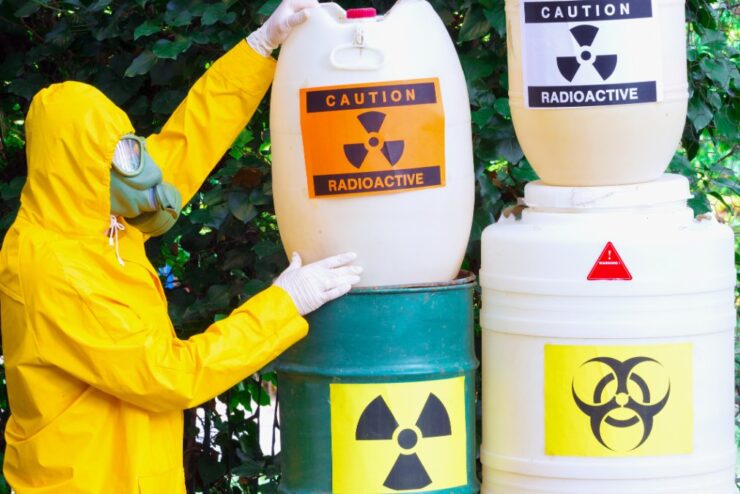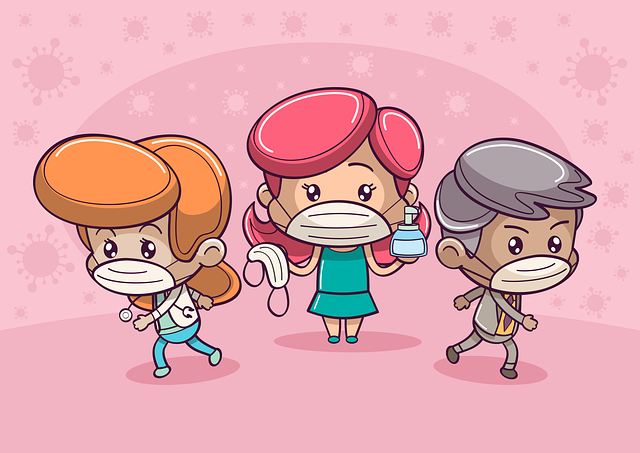In today’s industrialized world, chemical waste management is a key part of environmental preservation and sustainability. The fast rise of industries and technical breakthroughs has resulted in a surge in the production and usage of numerous chemicals. Along with this, you will be able to harness Chemical Waste Management Service in Abu Dhabi by going through this article, Through this, you may pose substantial threats to human health and the environment if incorrectly managed.
Chemical waste consists of hazardous compounds, poisonous byproducts, and other dangerous elements that can contaminate the air, water, and soil, altering ecosystems and negatively damaging biodiversity. Effective management methods are required to protect against the negative impacts of chemical waste. Furthermore, such strategies attempt to reduce hazardous waste creation and ensure safe handling and transportation. Along with this, you can also encourage proper disposal or recycling processes.

Prominent Measures To Manage Chemical Waste Management:
Effective management of chemical waste is crucial to safeguard human health, protect the environment, and ensure sustainable development. Below are some key measures that play a vital role in managing chemical waste:
Hazard Identification and Risk Assessment –
Before any chemical is used or produced, it is essential to identify potential hazards associated with it and conduct a thorough risk assessment. This process helps in understanding the risks involved in handling, storing, and disposing of the chemical waste, enabling the implementation of appropriate safety measures.
Minimization at the Source –
The best approach to managing chemical waste is to reduce its generation at the source. Industries should adopt cleaner production techniques, implement process modifications, and utilize more environmentally friendly substances to minimize waste production.
Inventory and Tracking –
Keeping a detailed inventory of chemicals used within an organization helps monitor the quantity, usage, and expiration dates. This information aids in optimizing storage, ensuring timely use, and preventing the accumulation of obsolete or expired chemicals that may become hazardous waste.
Safe Storage and Handling –
Proper storage and handling practices are essential to prevent accidental spills, leaks, or exposures. Chemicals should be stored in appropriate containers and segregated based on compatibility. Personnel must be trained in safe handling procedures, including the use of personal protective equipment (PPE).
Waste Segregation –
It is crucial to separate different types of chemical waste to prevent cross-contamination and facilitate appropriate treatment or disposal methods. Segregation allows for the recycling of certain chemicals and reduces the volume of hazardous waste requiring special treatment.
Waste Minimization Techniques –
Implementing waste minimization techniques, such as recycling, reusing, or recovering chemicals from waste streams, can significantly reduce the environmental impact and overall waste volume.
Treatment and Neutralization –
Chemical waste that cannot be reused or recycled should undergo appropriate treatment processes to neutralize its harmful effects. Treatment methods may include chemical neutralization, oxidation, reduction, or other specialized processes, depending on the waste characteristics.
Proper Transportation –
Safe transportation of chemical waste from the point of generation to the treatment or disposal facility is crucial. Compliance with transportation regulations and the use of authorized transporters ensures that spills or accidents are minimized during transit.
Regulatory Compliance –
Governments worldwide have established regulations and guidelines for chemical waste management. Strict adherence to these regulations ensures that industries and individuals manage chemical waste responsibly and within the legal framework.
Education and Training –
Creating awareness and providing training to employees, workers, and the public about chemical waste management practices is essential. Education empowers individuals to handle chemicals safely, promotes responsible waste disposal, and encourages the adoption of environmentally friendly practices.
Emergency Preparedness –
Developing contingency plans for dealing with chemical spills, leaks, or accidents is critical. Emergency response teams should be trained to act promptly and effectively to minimize the impact of any chemical-related incidents.
Regular Audits and Monitoring –
Conducting regular audits and monitoring chemical waste management practices helps identify potential issues and areas for improvement. Periodic assessments ensure that all measures are being implemented effectively and that compliance remains consistent.

Why Is Chemical Waste Manage Important At This Period Of Time?
Chemical waste management is particularly crucial at this period of time for several reasons:
Environmental Protection –
With the rapid industrialization and technological advancements, the volume of chemical waste generated has significantly increased. Improper disposal or mismanagement of chemical waste can lead to severe environmental pollution, contaminating air, water, and soil. This pollution can harm ecosystems, disrupt natural habitats, and endanger plant and animal species.
Human Health –
Chemical waste contains hazardous substances that can pose serious health risks to human populations. Exposure to toxic chemicals can lead to acute or chronic health issues, including respiratory problems, skin disorders, neurological disorders, and even certain types of cancer. Proper management of chemical waste is essential to minimize the risk of such health impacts on communities living near waste disposal sites or industrial areas.
Global Climate Change –
Some chemical waste, such as greenhouse gases and ozone-depleting substances, can contribute to global climate change. Proper management, including reduction and controlled disposal of these chemicals, is essential to mitigate their impact on the Earth’s climate system.
Resource Conservation –
Many chemicals used in industrial processes can be valuable resources. Effective waste management practices, such as recycling and recovery, help conserve these resources, reducing the need for virgin materials and minimizing overall environmental impacts.
Legal and Regulatory Compliance –
Governments around the world have established strict regulations and laws regarding the management of chemical waste to protect human health and the environment. Compliance with these regulations is essential to avoid legal penalties and ensure responsible corporate behavior.
Concluding Remarks:
In conclusion, chemical waste management is of paramount importance at this period of time due to its significant impact on the environment, human health, and overall sustainability. By adopting responsible practices and adhering to regulatory requirements, we can mitigate the adverse effects of chemical waste and contribute to a cleaner, safer, and more sustainable world. Through this article, our major focus was to help you understand the process through which you can profusely collect different medical waste with ease.
Cleanco Waste Treatment (CWT) is one of the most well-renowned platforms that can help you to thoroughly collect medical waste and make the environment safe and secure.



























































